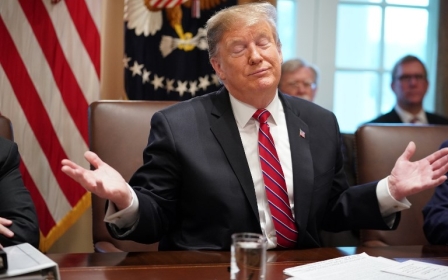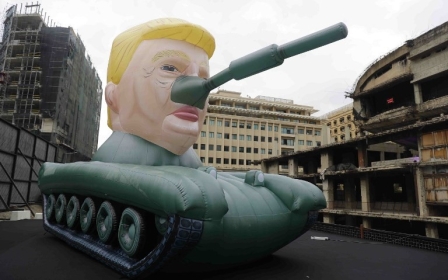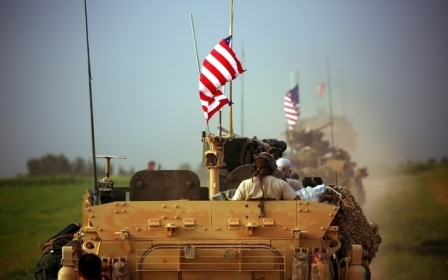US to keep about 400 troops in Syria, senior Trump administration official now says

The United States plans to keep about 400 troops in Syria, a senior Trump administration official said, contradicting a pledge made earlier this week that Washington would leave only 200 military personnel in the war-torn country.
Washington intends to split the approximately 400 troops between a safe zone being negotiated for northeastern Syria and the US military base at Tanf, near the border with Iraq and Jordan, the official said on Friday, as reported by Reuters.
About 200 US troops in northeastern Syria will be part of what is expected to be a total commitment of about 800-1,500 troops from European allies, the US official said.
The official's comments come less than 24 hours after White House spokeswoman Sarah Huckabee Sanders said that only "a small peace-keeping group of about 200 [US troops] will remain in Syria for a period of time".
They're also the latest example of how Donald Trump's administration has repeatedly changed its story about the US withdrawal from Syria, which the US president announced in mid-December.
At the time, Trump said he intended to pull about 2,000 US troops out of the country, where they had provided support to Kurdish-led forces battling the Islamic State (IS) group.
The time was right to withdraw, the US president said, because IS had been "defeated" in Syria.
However, the decision prompted widespread criticism both abroad and at home, with US lawmakers accusing Trump of abandoning the Kurds in northern Syria and Washington's European allies saying they, too, felt betrayed by the US's plan.
In the face of mounting pressure, Trump appeared to backtrack, saying the US withdrawal would happen incrementally and raising the possibility that some American forces could be left behind.
Trump also got on the phone several times with Turkish President Recep Tayyip Erdogan, as both leaders said they planned to coordinate the creation of a "secure zone" in northern Syria.
Turkey views the US-backed Peoples' Protection Units (YPG), a Kurdish-majority militia in Syria, as an offshoot of the outlawed Kurdistan Workers' Party (PKK) and Washington's support for the YPG has long been a major point of contention for Ankara.
General Joseph Dunford, chairman of the Joint Chiefs of Staff, said on Friday that "there is no change in the basic campaign [in Syria]".
"The resourcing is being adjusted because the threat has been changed," Dunford said, as reported by Reuters news agency.
For his part, acting Pentagon chief Patrick Shanahan was expected to meet his Turkish counterpart on Friday.
Shanahan held a meeting on Syria with a small group of defence ministers last week during a security conference in Munich, US officials told Reuters. They talked about needing a security arrangement in northeast Syria after the US leaves.
Kurds welcome the decision
Meanwhile, Kurdish forces in Syria welcomed the White House's original pledge this week to leave 200 troops in the country.
Keeping US forces in the region "will be a motivation, an incentive and also a means of pressure on Damascus to try seriously to have a dialogue to resolve the Syrian crisis", said Abdulkarim Omar, co-chair of foreign relations in the region held by the US-backed Syrian Democratic Forces (SDF).
The SDF is led by fighters that belong to the YPG.
"This decision may encourage other European states, particularly our partners in the international coalition against terrorism, to keep forces in the region," Omar told Reuters news agency on Friday.
"I believe that keeping a number of American troops and a larger number of [other] coalition troops, with air protection, will play a role in securing stability and protecting the region too."
Still, a Western diplomat said it remained to be seen whether European allies would contribute troops, or whether the force would be able to secure the area.
"Even if 200 troops remain and the US decides to continue claiming the airspace, it's not clear whether that would convince Britain, France and other partners to stay - and whether that could keep the Syrian regime out of the northeast for now, or Turkey, or an IS resurgence," the diplomat said, as reported by Reuters.
Middle East Eye propose une couverture et une analyse indépendantes et incomparables du Moyen-Orient, de l’Afrique du Nord et d’autres régions du monde. Pour en savoir plus sur la reprise de ce contenu et les frais qui s’appliquent, veuillez remplir ce formulaire [en anglais]. Pour en savoir plus sur MEE, cliquez ici [en anglais].




